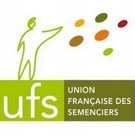One year after the decision of the European Court of Justice, French seed companies remain in a context of legal uncertainty.
In 2015, 9 organisations referred to the Conseil d'Etat to clarify whether mutagenesis techniques were subject to the GMO Directive published in 2001. The latter turned to the ECJ, which confirmed on 25 July 2018 that European regulations applied to all plant breeding methods developed after 2001.
For a year now, seed companies have been waiting for the Conseil d'Etat to clarify how the European directive will be applied in French law. This situation leads to insecurity for the development of innovation in France. It also raises the question of adapting European regulations that had become obsolete because they were based on the state of science in the 1980s.
Despite this uncertain context, France remains the world's leading exporter and the leading European seed producer. But for how much longer? Seed companies are concerned about the impact of such a decision on the competitiveness of a sector that creates value for the territories. Indeed, it jeopardizes our agricultural sectors by depriving farmers of the innovation and genetic progress provided by seed companies. Seeds are the source of high-quality, healthy and sustainable food and offer concrete solutions to current climatic and agro-ecological challenges: cultivated biodiversity, resistance to diseases and pests to reduce the use of plant protection products, drought tolerance, nutritional quality... These tailored solutions are the result of significant annual R&D investments (13% of sales on average) and public-private partnerships.
Any loss of competitiveness would be likely to open the door to imports of raw materials sometimes produced in conditions far removed from European standards and consumer expectations.
Whatever the decision of the Council of State, the UFS asks the government to assume its responsibilities by giving priority to the right decisions on the application of the directive in French law and by supporting a revision of the European legal framework led by twelve EU Member States, including the Netherlands, another major seed producing country.
Franck Berger, President of the UFS, explains: "The French seed sector has proven its resilience and remains, this year again, the world's leading exporter. However, regulatory uncertainty is a major factor of legal and economic uncertainty for our companies. The government must support varietal innovation in our territory to offer farmers the varieties best adapted to their local constraints."
For more information:
UFS
Guillaume Le Duff
Tel: 06 02 15 0 708
[email protected]
Rachel Blumel
Tel: +33 (0)1 53 00 99 31
[email protected]
